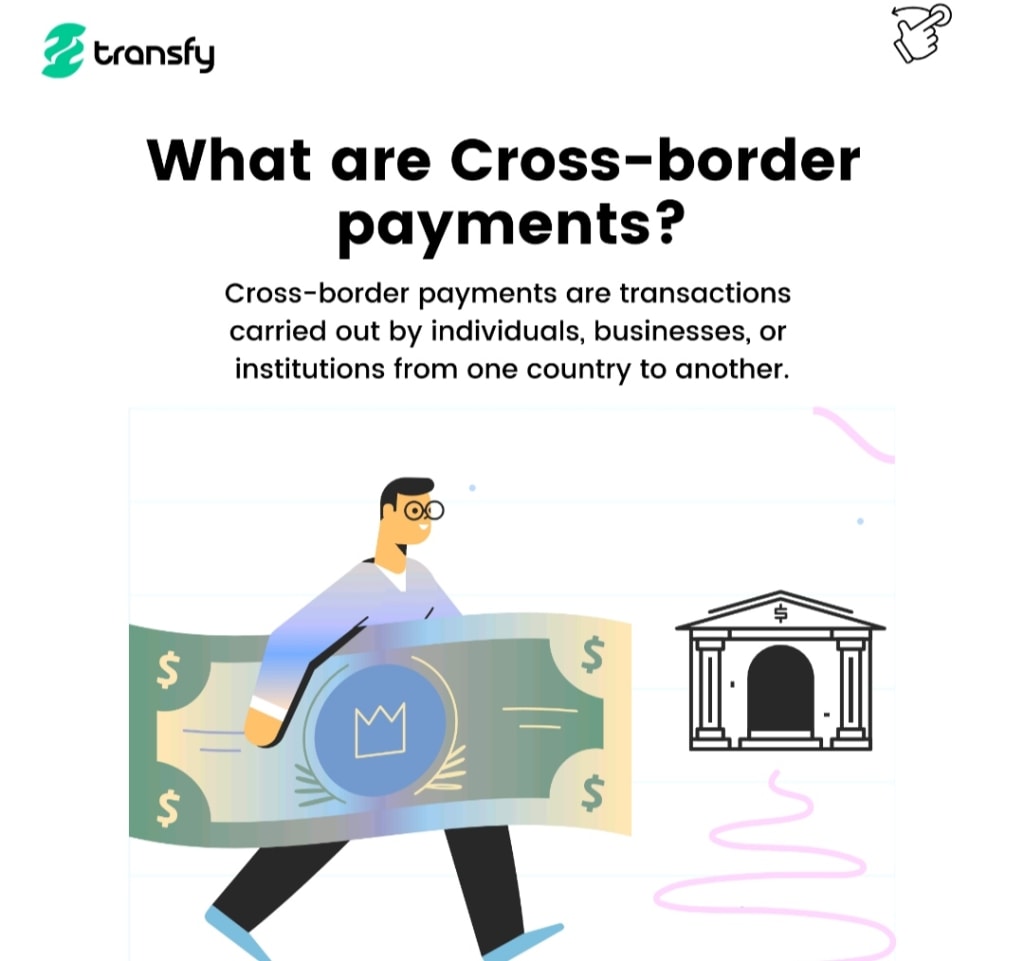How Do Cross-Border Payments Work Around the World?
Today's shopping has a worldwide reach. Settlements, remittances, and acquisitions all often call for cash exchanged across boundaries. Cross-border repayments are specified as funds paid to or absorbed from different nations, so the location where the merchant is registered is different from the country where the client's card was provided.

Many different situations need to be represented when a merchant is required to handle global repayments due to the fact that each country has its very own set of policies. The need for cross-border payments is so high that steps are being made to improve cross-border payments all at once.
Cross-Border Repayments need to understand
If you wish to have a worldwide business, all steps of a cross border deal need to be recognized as well as sometimes adjusted to ensure the consumer will have a good experience when making a global acquisition online. Take a look at what you require to consider to increase your organization cross-border.
Capital in Cross-Border Payments
When a person purchases, there's a system that carries the cash from the buyer's account to the merchant's account. With cross-border payments, it becomes extra complicated. International deals call for an adjustment of currency, international deal fees as well as taking care of an exchange rate. To browse with these channels, a banking system ushers the money along.
In every cross-border settlement, banks and a group of varying residential entities interact to move funds. When a purchase is made, a "contributor financial institution," or the entity asking for the money, talks to the "respondent financial institution," which stands for the entity buying something.
Throughout the major cities of the world, each financial institution has an equivalent in one more city. So funds will certainly first leave the purchaser's financial institution as well as go to that financial institution's counterpart in the seller's nation to prepare for compensation.
The vendor's financial institution will then obtain the remitted funds, as well as they will be worked out right into the seller's account. These banks usually collaborate with others to move the cash, which usually entails greater than 4 financial areas managing each other, navigating currencies, differing tax obligations, as well as deal charges. Since there are a lot of entities working with a single acquisition, the process can be sluggish.
Practical use Cross-Border Settlements
Let's consider a cross-border transaction example to better understand just how this process could function.
- Camila determines to get a brand-new layer from a merchant online, Coat Storehouse.
- Camila is Brazilian, but she got her coat from Canada.
- She's motivated by her address, bank card info, and after that clicks "send.".
- She enters her settlement information online, as well as the cash from her bank in Brazil (or charge card firm's bank), which is the reporter bank, and will interact with her correspondent bank's visibility in Canada.
Cross-Border Settlement Charges.
What are the Fees Associated With Cross-border Transactions?
There are numerous costs when it pertains to cross-border transactions. The majority of them are absorbed by bank charges, which are a lot more pricey than any other part of the transaction. So while cross-border settlements are costly, they remain in such high demand that they grow.
Cross-border deals impact individuals along with firms. Remittances are usually sent from an immigrant family living in establishing nations. These kinds of transactions are additionally subject to cross-border settlement charges.
Various other processing costs include a cross-border charge, which varies. This charge is a percentage that puts on a customer's acquisition made with an international bank card. This price can range from credit cards, so it's tough to know what percent will be butted in a transaction.
The largest unidentified tax obligations, as each country has its very own tax system. Tax obligations apply to every little thing, which suggests more than simply sales tax. Value Included Tax Obligation (VAT), personalized duty prices are put on shipments. These all differ from nation to nation.
Ultimately, each country has its own currency, which means currency exchange rate should be determined. While not an actual fee, the rate remains in continuous flux, so it is very important to keep tabs on what is being acquired. This influences the consumer when it pertains to in fact buying the goods, but if the seller is acquiring any type of solutions throughout borders, then it puts on them, too.
About the Creator
Lisa Transfy
Transfy is a Fintech startup on a mission to connect individuals and businesses across Africa financially. This is by building a financial infrastructure which enables them to seamlessly and securely send money within Africa
Enjoyed the story? Support the Creator.
Subscribe for free to receive all their stories in your feed. You could also pledge your support or give them a one-off tip, letting them know you appreciate their work.






Comments
There are no comments for this story
Be the first to respond and start the conversation.